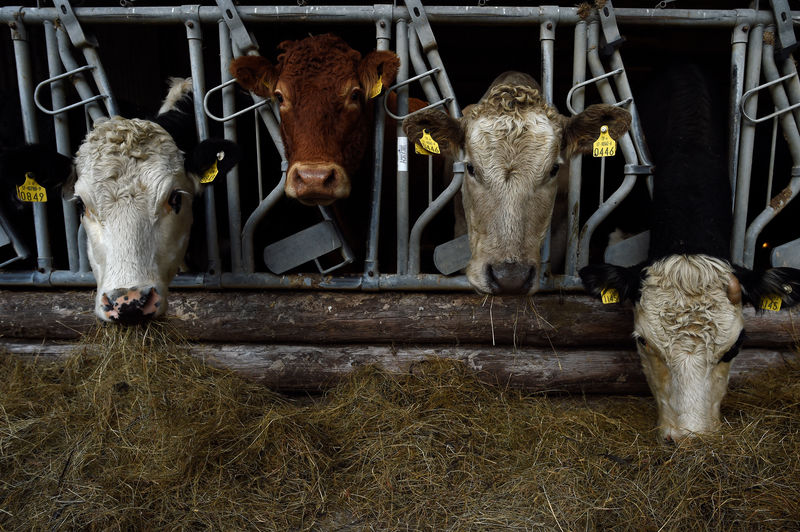(Bloomberg) -- More U.S. dairy farmers are sending their cows to be turned into hamburgers after the coronavirus reduced demand for milk and boosted retail demand for cheap beef.
Even with the meatpacking industry beset by shutdowns, the number of milking cows sent to slaughter has risen 2.3% in the past four weeks, according to INTL FCStone. Processors are paying a premium amid surging demand for affordable cuts from shoppers weathering the pandemic at home, said Dave Kurzawski, senior broker at the firm in Chicago.
American dairies could reduce their herd size this year by 80,000 to 90,000 amid a glut of milk, and the vast majority will head to the beef market, he said.
“Lean ground beef, principally from dairy cows, has become the prime meat of the day,” Kurzawski said by phone. “It can be ground up and used in what would be considered ground beef and ground chuck.”
The coronavirus has dashed hopes for a dairy recovery just as the industry had expected to see growing herds and better prices in 2020. While the virus has boosted retail sales of milk in grocery stores, it has not been enough to offset the rapid demand drop from restaurants and schools, forcing farmers to dump milk to curb supplies at a time of year when cows are entering their most productive period.
Futures of milk used in cheesemaking have lost more than 20% this year as lockdowns erode demand for cheese and butter. At the same time, wholesale beef prices have doubled to a record amid slaughterhouse disruptions.
Dairy farmers aim to reduce milk output by 5% to 15% due to significant imbalances in supply and demand, said David Darr, senior vice-president and chief strategy and sustainability officer with Dairy Farmers of America.
That could include extending a period where a cow doesn’t lactate, changing the diet of the herd to lower output or selling animals, he said.
The result has been “catastrophic” for some farmers and the full impact of the virus on the dairy market probably won’t be felt for another 30 to 60 days, Darr said.
“We’ve seen some farms who are using a combination of all three of those within their herds to adjust production,” Darr said. “There are some farms who are looking at addressing their milk production by removing some animals from their herds.”
Despite the recent increase in dairy-cow slaughtering, the herd had been trending higher prior to the coronavirus hitting North America. And as less efficient cows typically are the first to go, it may mean that dairy production can stay persistently strong even with some reduction in the herd.
“It looks like cow numbers are still going up and milk production is still going up, so there’s countervailing forces,” Jared Hutchins, a researcher in dairy economics at the University of Wisconsin-Madison, said by phone.
©2020 Bloomberg L.P.
